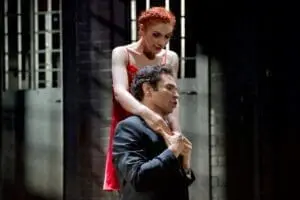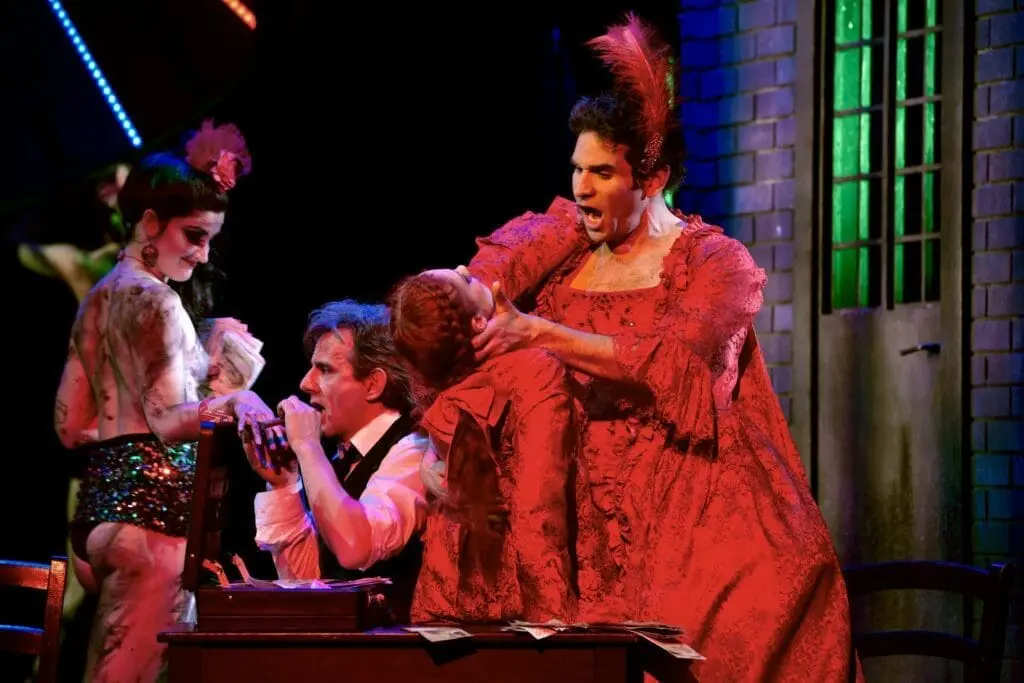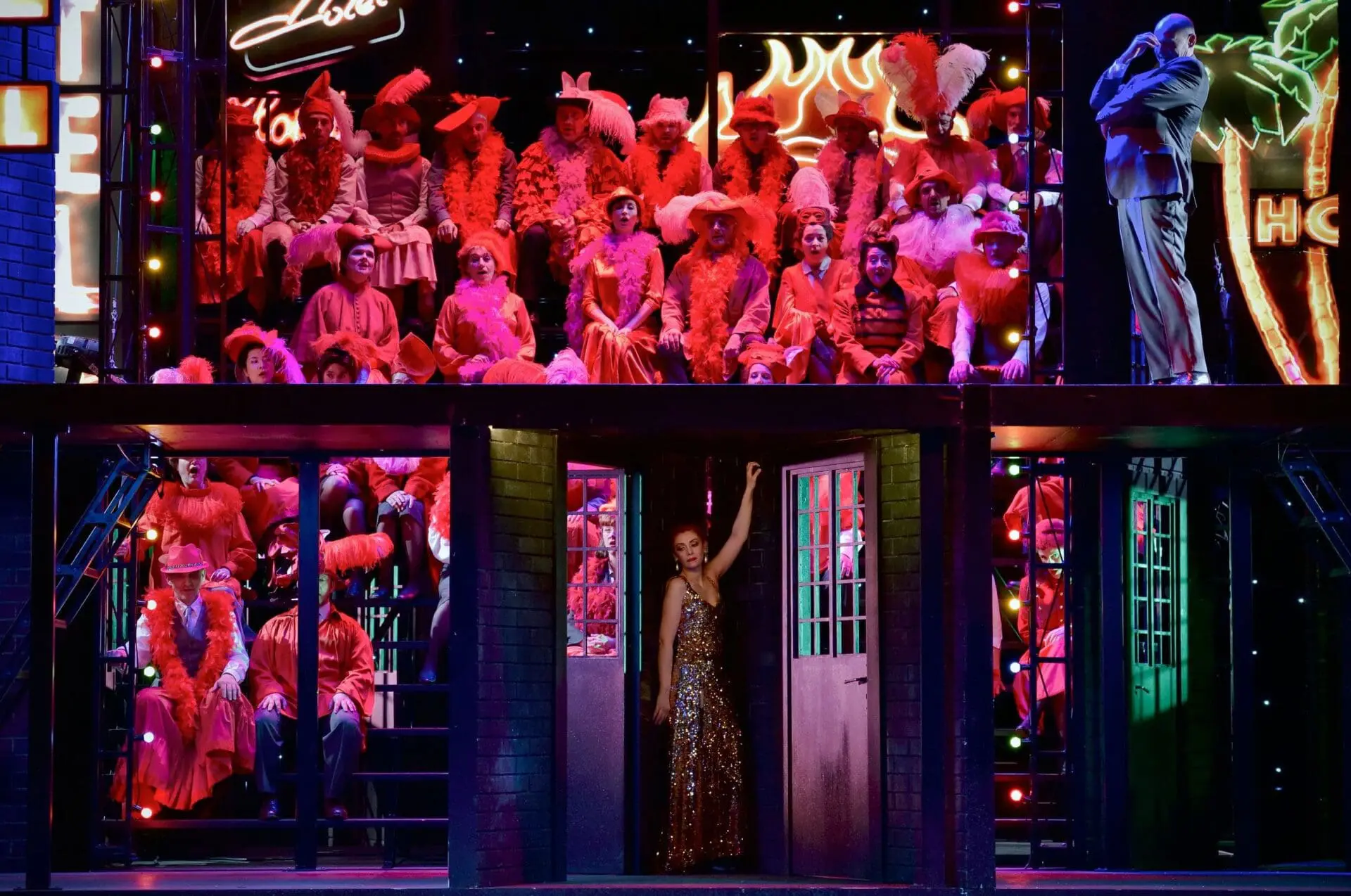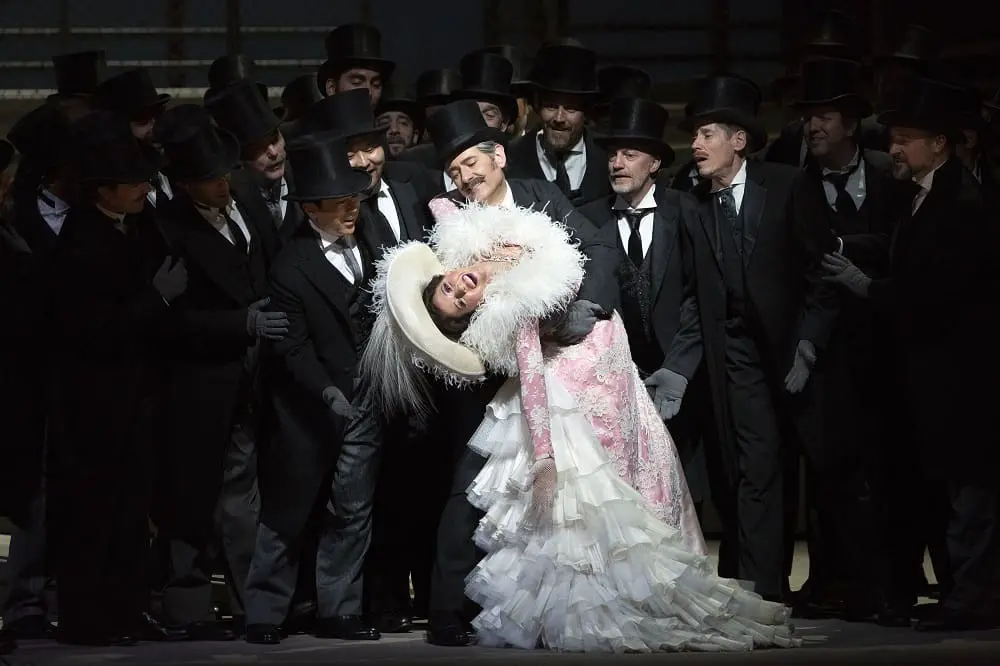When Opéra Comique announced it would be programming Jules Massenet’s Manon (seen May 13th) as part of their spring season I was overjoyed. Not only is it one of the most beloved operas of the French Romantic repertoire but it premiered in this very house in 1884 and therefore continues a two-year cycle of highly successful productions at Salle Favart featuring works that once made its glory.

Patricia Petibon (Manon) and Frédéric Antoun (Chevalier des Grieux) in Opéra Comique’s Manon. Photo: Stefan Brion
The other announcement that brought a great deal of excitement was that French soprano Patricia Petibon, famous for her mastery of the Baroque repertoire, would sing the role of Manon for the first time and that Canadian star tenor Frédéric Antoun would be at her side as the Chevalier des Grieux.
I was more circumspect at the idea of Olivier Py taking on the staging. As much as I admire his work as a theatre director and writer, as well as his outspoken political positions, to my mind his opera productions are less convincing. With the memory of his Rake’s Progress (Paris, Opéra Garnier, 2008) or the Trilogy of the Devil (Der Freischütz, Les Contes d’Hoffmann, La Damnation de Faust, 2001-2003 at Grand Théâtre de Genève), I feared something completely over-the-top and bombastic that didn’t take the work seriously. But I was wrong—this is one of his most sensitive and detailed stagings, and one of the most successful that I’ve seen of Manon in recent times. He compares her fate to that of: “those girls who arrive today from the former Eastern Bloc, promised university studies and find themselves on a sidewalk behind the Arras train station.”

Patricia Petibon (Manon) and Frédéric Antoun (Chevalier des Grieux) in Opéra Comique’s Manon. Photo: Stefan Brion
The scenography by his close associate Pierre-André Weitz is finely tuned to his every intention. Made of moving boxes rimmed with black bricks, it transforms from scene to scene going from a red-light district of pulsating neon signs, to the interior of a doll-house brothel, to a glittering music hall, to the cold stone walls of Saint-Sulpice.
Petibon brings her extraordinary talent as an actress to this role and Py stages her demise with devastating poignancy. Her voice is at once soft and full-bodied, rich in the middle with her renowned agility in the high register. Her interpretation is finely characterized and never yields to the obvious. Though clearly inspired by the sulphurous and Romantic dimension of his heroine, Py nevertheless brings out her eroticism subtly, leaving all the nudity and grotesque vulgarity to the crowd of prostitutes and pimps that surround her. These form a kaleidoscope of rhinestones, garters, buttocks, breasts and naked go-go boys. It is a chaotic orgy in the middle of which Manon radiates like a fallen angel. She sings her “Adieu notre petite table” while holding a glistening disco ball.

Frédéric Antoun (Chevalier des Grieux) and Patricia Petibon (Manon) in Opéra Comique’s Manon. Photo: Stefan Brion
The men are depicted uniformly as brutes satisfying their greedy carnal impulses: Damien Bigourdan was excellent as Guillot and the outstanding Jean-Sebastien Bou, ideally suave and decadent as Lescaut. Only Antoun’s Des Grieux is noble and sincere, qualities intrinsic to his beautiful voice. He is excellent throughout, the quality of his phrasing, his use of chiaroscuro and then his radiant high notes: his “Ah! fuyez douce image” is equal to any heard on international stages today.
Time flies frantically in Massenet’s opera but Marc Minkowski conducts it with poise and elegance—especially the faux 18th–century dance sections—and then, by contrast, bringing astounding richness to the climaxes with the virtuosic Musiciens du Louvre playing in full throng.
















